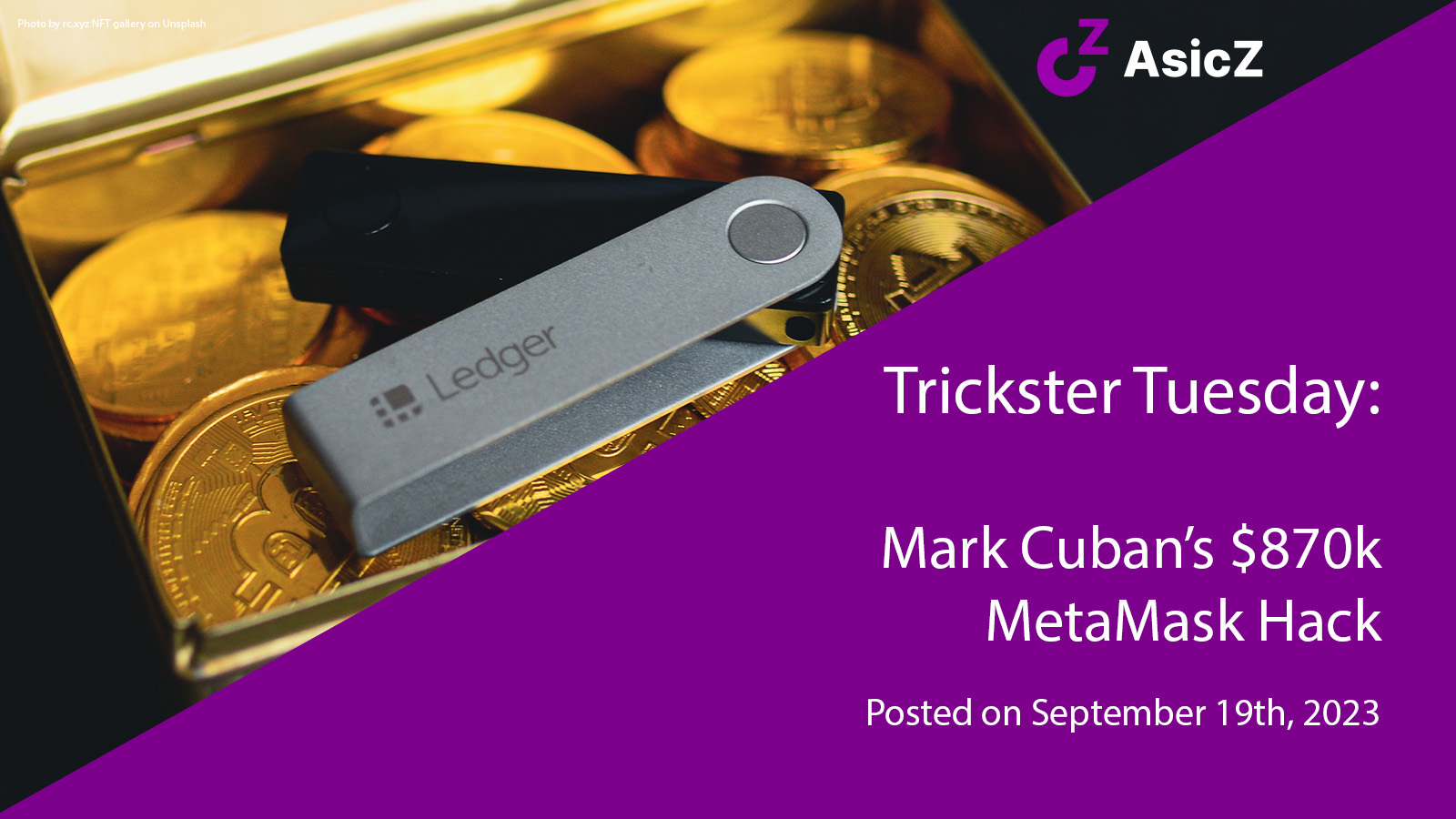The cryptoverse is riddled with both immense opportunities and lurking pitfalls. Even the most seasoned investors, with vast resources at their disposal, can find themselves ensnared by the latter. This week’s Trickster Tuesday explores the recent Metamask hack involving billionaire Mark Cuban, shedding light on the importance of stringent security measures in the digital asset space.
The Incident Unraveled
Mark Cuban, a name synonymous with entrepreneurial success, recently became the focal point of the community, albeit for an unfortunate reason. The billionaire investor, known for his roles in the Dallas Mavericks and Shark Tank, fell prey to a scam, resulting in a loss of approximately $870,000.
A vigilant Twitter user, @WazzCrypto, was the first to spot the irregularity. After observing Cuban’s digital wallet’s inactivity for 160 days, it was alarming to see its sudden depletion. The wallet, a treasure trove of diverse tokens like USDC, Lido-staked Ether, SuperRare tokens, and Ethereum Name Service, was systematically drained.
The Modus Operandi
Upon being alerted, Cuban speculated about the potential cause. He believed the breach might have been due to a compromised version of the MetaMask wallet he downloaded. MetaMask, a popular crypto wallet for NFTs and other digital assets, is frequently targeted by scammers who promote malicious versions to unsuspecting users. Once installed, these compromised versions can grant hackers access to the user’s assets.
Cuban’s experience with the compromised MetaMask wallet he downloaded should have been a tell tale sign. The software had crashed multiple times, hinting at possible malware interference. Realizing the gravity of the situation, Cuban acted promptly, securing his NFTs on OpenSea and moving his Polygon tokens away from the compromised account.
Cuban’s Crypto Endeavors: A Brief Overview
Cuban’s tryst with the cryptoverse isn’t new. He has been an active participant, endorsing and investing in various projects. His backing of the DeFI token TITAN made headlines, especially when the token faced a dramatic collapse in 2021. Cuban’s association with another crypto firm, Voyager Digital, was also unsuccessful and ended up declaring bankruptcy once the bull market ended.
Cold Storage: The Fort Knox of Crypto
The incident with Mark Cuban underscores the paramount importance of security in the space. While online wallets offer convenience, they are susceptible to hacks, phishing attacks, and malware. Enter cold storage methods, like hardware wallets.
Hardware wallets are physical devices that store a user’s private keys offline. By ensuring the keys never touch an internet-connected device, they provide an added layer of security against online threats. Popular options include Ledger Nano S, Trezor, and KeepKey, which should always be purchased directly from the respective manufacturer. For any long term storage of digital assets, the use of hardware wallets isn’t just recommended; it’s imperative.
The crypto landscape, while promising, is fraught with risks. Cuban’s ordeal serves as a stark reminder that no one is immune. However, with due diligence, awareness, and the right security measures, such pitfalls can be avoided.
As we conclude this Trickster Tuesday, remember that knowledge is your most potent weapon. Equip yourself with the best tools and practices. And for those committed to staying ahead in the game, AsicZ.com is your ultimate ally. From daily insightful articles on our blog, to a vast selection of mining hardware and profitability calculators at your disposal to our industry-leading MaaS (Mining as a Service) with power rates lower than .03/kWh, AsicZ ensures you’re always a step ahead.
References:
- Decrypt – Mark Cuban Crypto Scam
- Analytics Insight – Mark Cuban Victim to Crypto Scam
- The Street – Mark Cuban Loses in Crypto Scam
- Yahoo Finance – Mark Cuban’s Crypto Loss
- Fortune – Mark Cuban’s Crypto Hack

